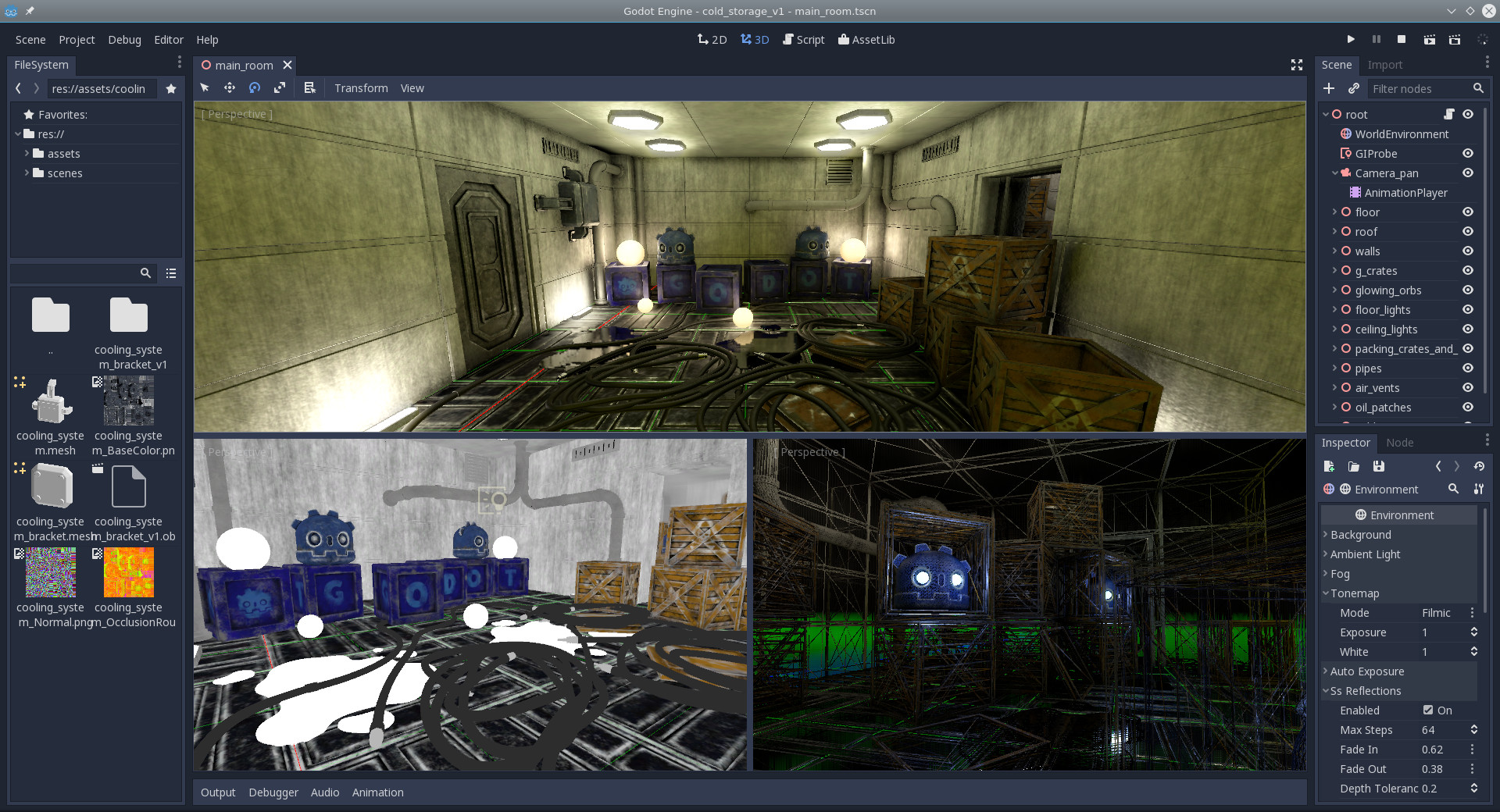Fixes reported logically dead codes by Coverity * image.cpp: Doesn't really need any modification. But to remove the bug report then we have to move the MAX call away from the for loop statement. * rasterizer_gles3.cpp: Removes unnecessary elif condition since it is checked earlier in the function * collada.cpp: If stamement never reached due to macro ERR_CONTINUE does the same. * navigation_mesh.cpp: Variables should always be null - however, also checked for the very same condition in their function call. Leaving this for review (whether the function call is necessary or not) * path_editor_plugin.cpp: If cancel is true, then it should restore the edited value to the original provided. http://docs.godotengine.org/en/3.0/classes/class_editorspatialgizmo.html#class-editorspatialgizmo-commit-handle * spatial_editor_gizmos.cpp: the very condition of i >= 3 is predetermined in the if case right before it. Thus case 1 is always '1' and case 2 is always '-1' * grid_map_editor.cpp: Same as above in spatial_editor_gizmos.cpp * voxel_light_baker.cpp: Same as above in spatial_editor_gizmos.cpp * visual_server.cpp: Same as above in spatial_editor_gizmos.cpp * visual_script_expression.cpp: char '-' is already true in the switch case mechanism. Thus it can never reach to default case. * particles.cpp: Case 'PARAM_MAX' is unreachable due to index checking right before the switch execution. * shader_language.cpp: Invalid index is handled in switch default case. `type < TYPE_FLOAT && type > TYPE_VEC4` -> `(type < TYPE_FLOAT || type > TYPE_VEC4`) Fixes the "always false problem" in TODO comment. |
||
|---|---|---|
| core | ||
| doc | ||
| drivers | ||
| editor | ||
| main | ||
| misc | ||
| modules | ||
| platform | ||
| scene | ||
| servers | ||
| thirdparty | ||
| .appveyor.yml | ||
| .clang-format | ||
| .editorconfig | ||
| .gitattributes | ||
| .gitignore | ||
| .mailmap | ||
| .travis.yml | ||
| AUTHORS.md | ||
| CHANGELOG.md | ||
| CONTRIBUTING.md | ||
| COPYRIGHT.txt | ||
| DONORS.md | ||
| ISSUE_TEMPLATE.md | ||
| LICENSE.txt | ||
| LOGO_LICENSE.md | ||
| README.md | ||
| SConstruct | ||
| compat.py | ||
| icon.png | ||
| icon.svg | ||
| logo.png | ||
| logo.svg | ||
| methods.py | ||
| version.py | ||
README.md
Godot Engine
Homepage: https://godotengine.org
2D and 3D cross-platform game engine
Godot Engine is a feature-packed, cross-platform game engine to create 2D and 3D games from a unified interface. It provides a comprehensive set of common tools, so that users can focus on making games without having to reinvent the wheel. Games can be exported in one click to a number of platforms, including the major desktop platforms (Linux, Mac OSX, Windows) as well as mobile (Android, iOS) and web-based (HTML5) platforms.
Free, open source and community-driven
Godot is completely free and open source under the very permissive MIT license. No strings attached, no royalties, nothing. The users' games are theirs, down to the last line of engine code. Godot's development is fully independent and community-driven, empowering users to help shape their engine to match their expectations. It is supported by the Software Freedom Conservancy not-for-profit.
Before being open sourced in February 2014, Godot had been developed by Juan Linietsky and Ariel Manzur (both still maintaining the project) for several years as an in-house engine, used to publish several work-for-hire titles.
Getting the engine
Binary downloads
Official binaries for the Godot editor and the export templates can be found on the homepage.
Compiling from source
See the official docs for compilation instructions for every supported platform.
Community
Godot is not only an engine but an ever-growing community of users and engine developers. The main community channels are listed on the homepage.
To get in touch with the developers, the best way is to join the #godotengine IRC channel on Freenode.
Documentation and demos
The official documentation is hosted on ReadTheDocs. It is maintained by the Godot community in its own GitHub repository.
The class reference is also accessible from within the engine.
The official demos are maintained in their own GitHub repository as well.
There are also a number of other learning resources provided by the community, such as text and video tutorials, demos, etc. Consult the community channels for more info.

